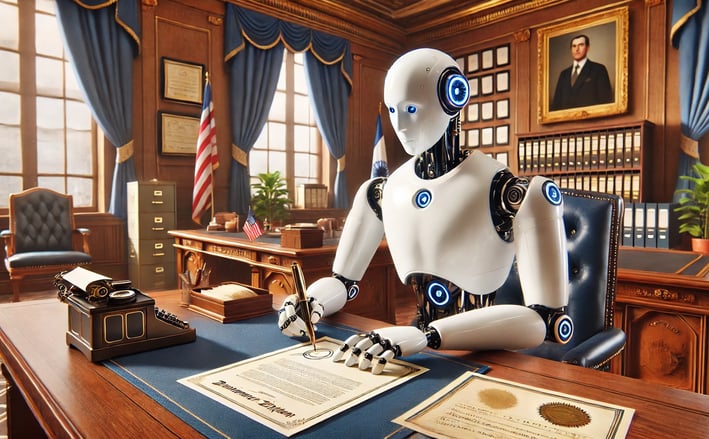Autopen: Because Who Needs Human Signatures Anyway?
In a world driven by efficiency and technology, the autopen—a device that replicates signatures with precision—is transforming how we perceive authenticity. "Autopen: Because Who Needs Human Signatures Anyway?" delves into the history, uses, and ethical debates surrounding this tool. The blog explores how autopens are revolutionizing industries like governance, corporate management, and...
POLITICSBLOG ARCHIVE
Usha Menon
3/20/20253 min read
The Autopen: A History of Signature Machines and the Controversies Surrounding Them
The autopen, a machine designed to replicate a person's signature, has been a staple of presidential politics and celebrity culture for centuries. From its humble beginnings as a simple signature machine to its current status as a high-tech digital tool, the autopen has played a significant role in shaping the way we perceive authenticity and authority. In this article, we'll delve into the fascinating history of the autopen, explore some fun facts, and examine the controversies surrounding its use.
A Brief History of the Autopen
The first autopen was patented in 1803 by a British engineer named John Isaac Hawkins. Hawkins' machine used a combination of levers and cams to replicate a person's signature. The device was initially marketed as a time-saving tool for busy professionals, but it quickly gained popularity among celebrities and politicians looking to capitalize on their fame.
One of the earliest recorded uses of the autopen was by Thomas Jefferson, who used the machine to sign letters and documents during his presidency. Jefferson was a prolific user of the autopen, and his machine is now on display at the Smithsonian National Museum of American History.
Fun Facts About the Autopen
The word "autopen" comes from the Greek words "auto" (meaning "self") and "pen" (meaning "writing instrument").
The autopen was originally marketed as a tool for people with disabilities, allowing them to sign documents without having to physically write.
Some autopens are so sophisticated that they can replicate the subtle variations in pressure and stroke that make up a person's unique signature.
The autopen has been used by numerous celebrities over the years, including Elvis Presley, Michael Jackson, and Oprah Winfrey.
Controversies Surrounding the Autopen
Despite its widespread use, the autopen has been at the center of several controversies over the years. One of the most significant concerns surrounding the autopen is its potential for abuse. Because the machine can replicate a person's signature with perfect accuracy, it can be used to forge documents and commit identity theft.
In 2011, the autopen was at the center of a controversy surrounding President Barack Obama's birth certificate. Obama's opponents claimed that the president had used an autopen to sign the document, which they alleged was a forgery. However, experts later confirmed that the signature on the birth certificate was genuine.
More recently, the autopen has been the subject of controversy surrounding President Joe Biden's use of the machine to sign executive orders. Critics have alleged that Biden's staff is using the autopen to sign documents without the president's knowledge or consent. However, the White House has denied these allegations, stating that the autopen is used only in situations where the president is unable to physically sign a document.
The Future of the Autopen
As technology continues to evolve, the autopen is likely to become even more sophisticated and widespread. Already, digital signature tools are being used by businesses and governments around the world to streamline document signing and verification processes.
However, as the autopen becomes more prevalent, it's likely that concerns about authenticity and abuse will only grow. To address these concerns, it's essential that we develop clear guidelines and regulations surrounding the use of autopens and digital signature tools.
In conclusion, the autopen is a fascinating technology with a rich history and a promising future. While it has the potential to revolutionize the way we sign documents and verify identities, it also raises important questions about authenticity and abuse. As we move forward, it's essential that we approach the autopen with a critical and nuanced perspective, recognizing both its benefits and its limitations.




